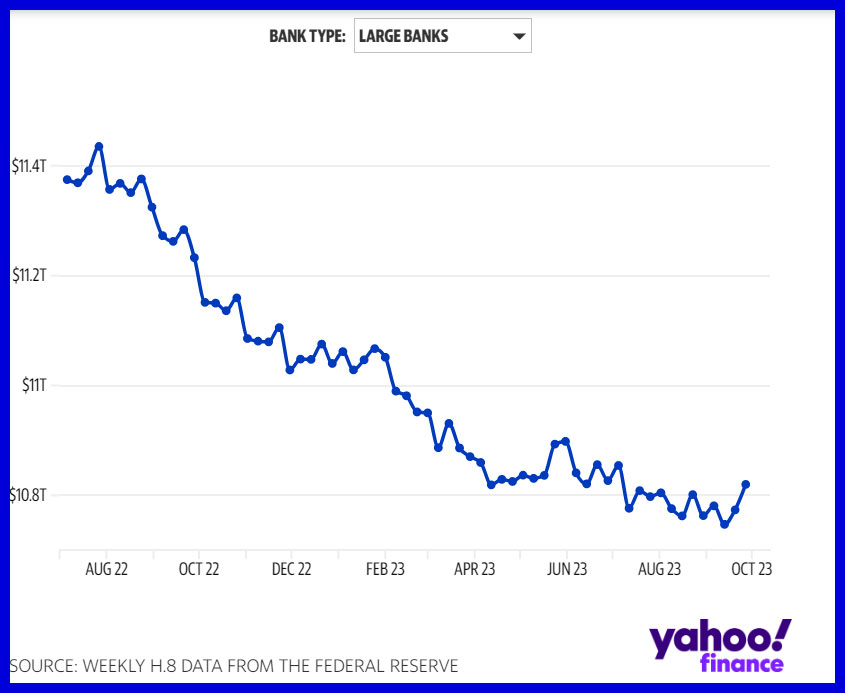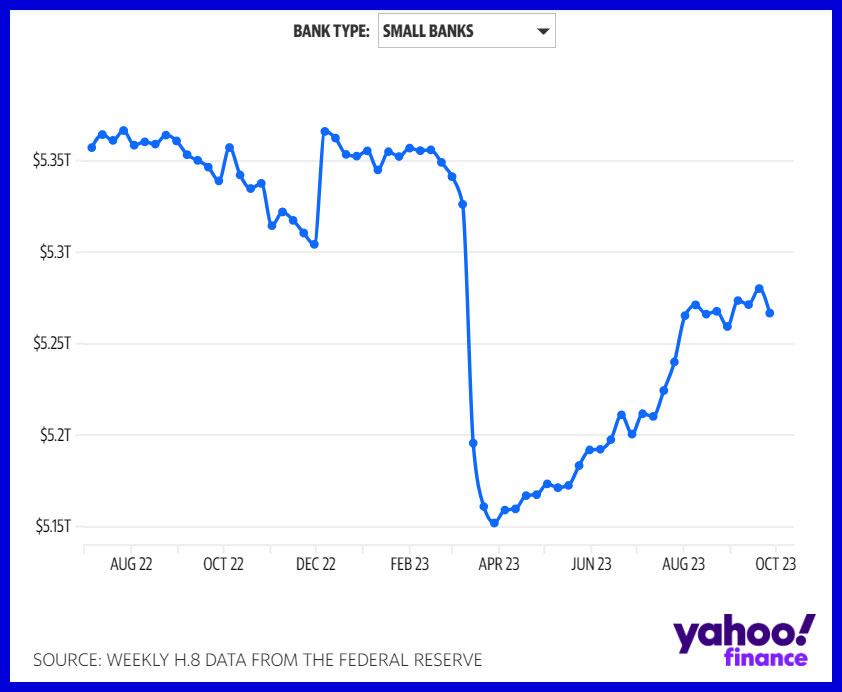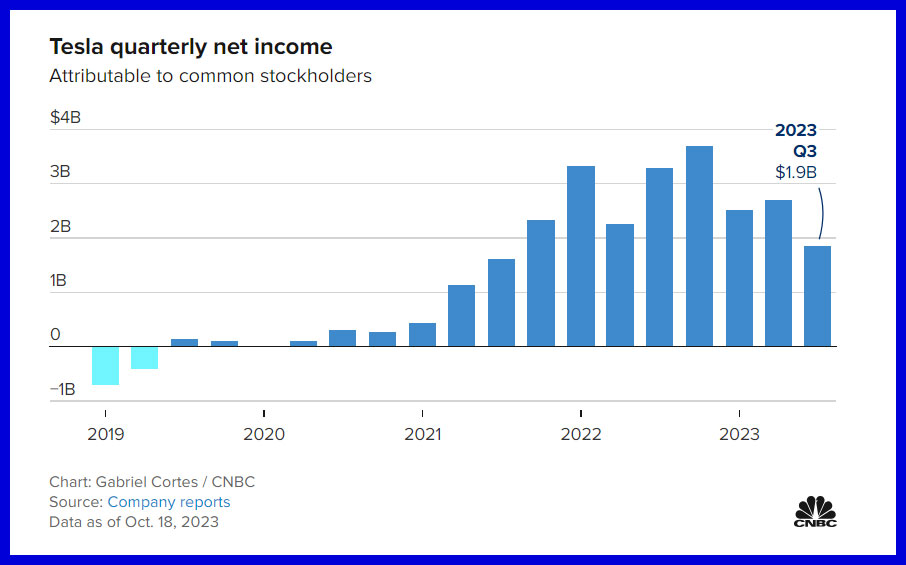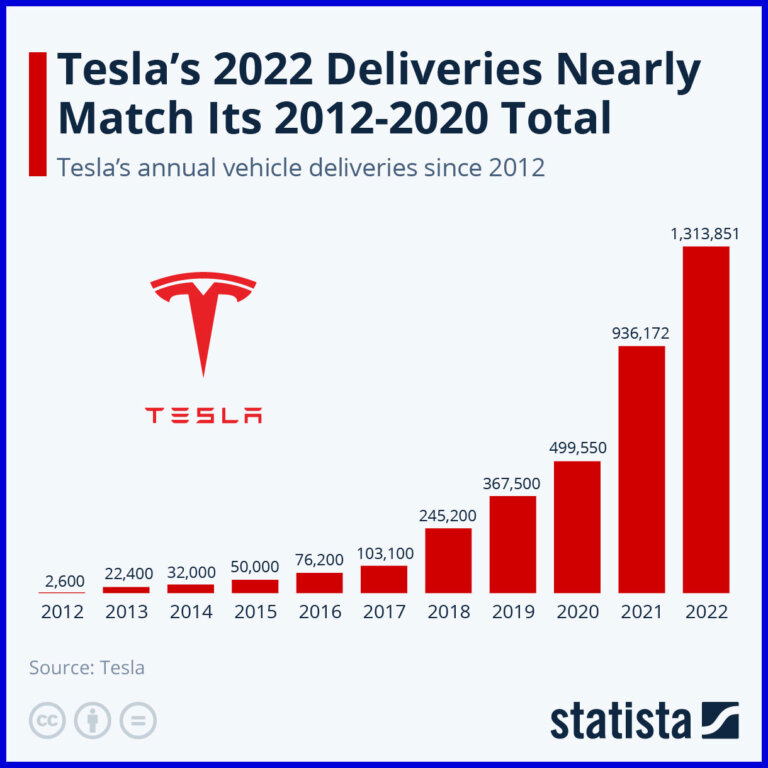Making sense of the markets this week: October 22, 2023
American banks and consumer companies perform better than expected, Tesla’s cost-cutting strategy results in short-term profit pain and Lulu hits the big time.
Advertisement
American banks and consumer companies perform better than expected, Tesla’s cost-cutting strategy results in short-term profit pain and Lulu hits the big time.

Kyle Prevost, creator of 4 Steps to a Worry-Free Retirement, Canada’s DIY retirement planning course, shares financial headlines and offers context for Canadian investors.
If you’ve been betting against American consumers over the last few years, then you haven’t won very often. That strength continued as the U.S.A.’s major financial institutions all had very positive earnings announcements over the past week. (All numbers are in USD for this and the following section.)
Here’s a breakdown of of the latest earnings announcements this week
Several banks commented on increased interest income as substantially helping their bottom lines. In the spirit of caution, influential banker extraordinaire, JPMorgan Chase CEO Jamie Dimon made some waves when he stated, “This may be the most dangerous time the world has seen in decades.”
However, it may help you sleep at night to know that other U.S. bank depositors appear to disagree with Mr. Dimon.
We were surprised to see the degree to which deposits have flowed out of the large U.S. banks and back into the riskier regional banks, which had such negative runs earlier this year.


Clearly, not everyone sees the same risks as Dimon. The lesson for now appears to be that you bet against the American economy and American banks at your own risk.
To see how Canadian banks are doing, check out my article on Canadian Bank Stocks at MillionDollarJourney.com.
Tesla’s (TSLA/NASDAQ) noteworthy earnings announcement this week has many shareholders wondering if CEO Elon Musk’s recent price cuts are a winning strategy.
Earnings per share came in at $0.66 (versus $0.73 predicted). Revenues totalled $23.35 billion (versus $24.10 billion predicted). Share prices were down nearly 5% on Wednesday after the announcement. It was the first time that the automaker had missed both earnings and revenue estimates since 2019.

Given their commitment to bringing prices down, investors knew Tesla’s margins would shrink. However, the reduction in total operating margin from 17.2% to 7.6% in year-over-year comparisons was a big concern.
A few weeks ago Tesla cut its prices on the Model 3 and Model Y by USD$1,000 to USD$2,000.
Musk is committed to more affordable pricing:
“I’m worried about the high interest rate environment we’re in […] If interest rates remain high or if they go even higher, it’s that much harder for people to buy the car.”
And he reiterated:
“I just can’t emphasize enough how important cost is… We have to make our products more affordable so people can buy it.”
Musk compared the battle for consumers’ wallets to, “Game of Thrones, but pennies.”
Tesla still hopes to meet its goal of delivering 1.8 million vehicles this year, which would continue its massive growth story.

The strong momentum at the beginning of the U.S. earnings season was not limited to the banks. We saw earnings beats in everything from Big Tech to stodgy old consumer necessities this week. All numbers below are in USD.
Here are some noteworthy earnings announcements from the week.
For JNJ and PG, we see total profits come down to a battle of margin increases versus volume decreases. As American customers become more and more price sensitive, it may force a recalculation of those aggressive price-raising strategies. For now, though, the corporate powers that be appear to be getting the balance more right than wrong.
While Netflix didn’t see a massive outperformance, its key metric of total memberships came in at 247.15 million, which was substantially higher than the 243.88 million predicted. The streaming company believes this is evidence that its strategy to crack down on password sharing is working.
While it was a relatively slow earnings week here in Canada, there were still some interesting developments.
Hot on the heels of last week’s Peloton announcement, there was more good news for Lululemon (LULU/NASDAQ) shareholders on Monday. When it was announced that the company was going to be added to the S&P 500 index there was an immediate 10% spike in the share price, representing a two-year high. (Note: Lululemon is headquartered in Vancouver and was initially listed on the Toronto Stock Exchange; however, it delisted to go to the NASDAQ exchange in 2013.)
Lulu is replacing the video game giant Activision Blizzard, which is being acquired by Microsoft.
This massive share appreciation is likely due to the fact that, as an S&P 500 index member, Lulu’s shares will now be purchased every time someone purchases an S&P 500 index fund. Given how many people have automatic purchase plans going with ultra-cheap index ETFs, this is likely to cause a substantial increase in demand.
While not on the scale of the recent oil acquisitions in the United States, Tourmaline Oil (TOU/TSX) announced on Monday that it would be purchasing Bonavista Energy for $1.45 billion. The acquisition would be evenly split between cash and Tourmaline shares.
Tourmaline released a statement on the acquisition:
“The Bonavista assets are a natural extension of Tourmaline’s existing operations in the Deep Basin where the company is already the largest producer.”
This is likely to add decades of inventory to the company’s assets in the Deep Basin, located in southern Alberta.
Finally, A&W Revenue Royalties Income Fund (AW/TSX) reported earnings roughly in line with shareholders’ expectations. Share prices barely moved on Wednesday when it was announced that royalty earnings were up 5.4% in year-over-year comparisons. Perhaps the only thing juicier than the Papa Burger is its current dividend yield of 6.26%.
In case you missed it, the Canadian Financial Summit is taking place RIGHT NOW! Don’t miss out FREE sessions with familiar faces from MoneySense (see below). Registering for the Summit is exactly $0, and you can click here for more details.

After reading every new book on the Canadian personal scene for several decades, (as well as writing a few himself), Jonathan Chevreau led an all-encompassing discussion on the best personal finance books ever written. He talks about books written exclusively for Canadians, as well as those written for international readers. We’ve got classics, new takes, lesser-known gems, and best-in-class selections. Don’t miss this one if you love to get your info from written text.
With so many ETF options available, it can be hard for investors to know what to put into their portfolios. MoneySense’s executive editor, Lisa Hannam, hosts as journalist Michael McCullough looks at the makeup of the ETF market. Hewill share, based on MoneySense’s ETF All-Stars Report, the ETF products Canadians could consider buying today.
The first-home savings account is brand spanking new, and Canadians have questions. In the similar format of MoneySense’s popular Ask A Planner column, executive editor Lisa Hannam will ask Certified Financial Planner Allan Norman real questions from Canadians about the FHSA, from what it is to where to open this account.
MoneySense executive editor Lisa Hannam and columnist Kyle Prevost work together on the popular column Making Sense of the Markets. It contextualizes headlines for Canadian investors, so together the duo will be looking at the headlines from the year and those to come, including interest rates, crypto (remember that asset?), employment, AI, GICs and so much more.
Share this article Share on Facebook Share on Twitter Share on Linkedin Share on Reddit Share on Email